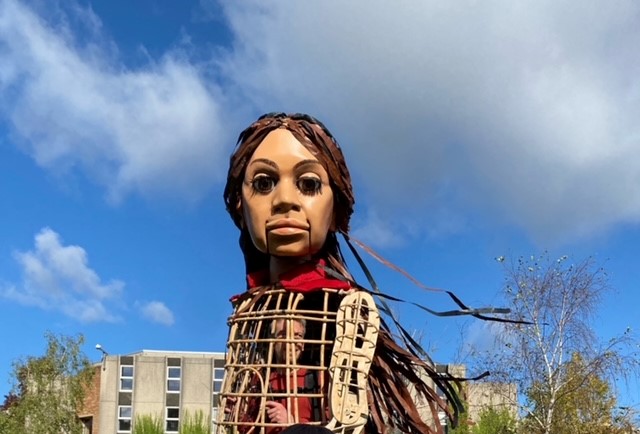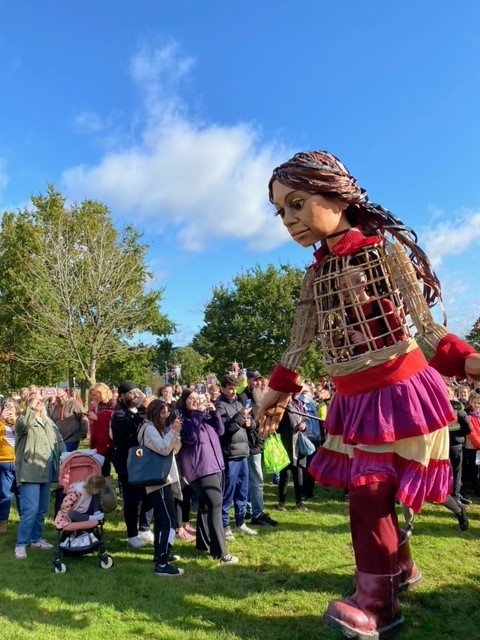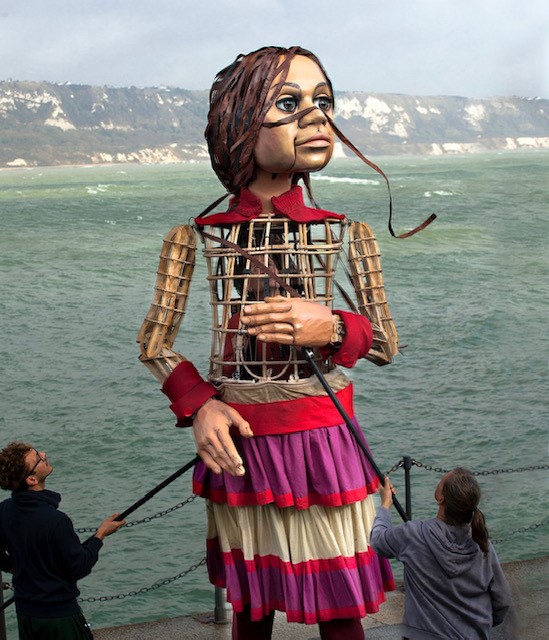
The refugee puppet girl was greeted with crowds on campus this week, but how do host countries view this potential addition to their workforce in reality?
Standing 3.5 metres high, 9 year old refugee puppet ‘Little Amal’ had walked nearly 8000km from the border of Syria when she arrived at The Gulbenkian on the 21st October.
Her journey intended to focus attention on the urgent needs of millions of young refugees worldwide and the need to change the narrative around human movement, a powerful subject explored through the focus on Migration and Movement at Kent.

Little Amal set out from Turkey’s Syrian border in July before passing through Greece, Italy, France, Switzerland, Germany and Belgium. Produced by Good Chance Productions, Kent’s leg of The Walk was put together by our Institute of Cultural and Creative Industries (iCCi).

‘The journey of Little Amal represents a simple yet powerful image of the plight of many young refugees around the world.’ Dr Matloob Piracha, said of the significance of her welcome here, having written about the integration of immigrants on the labour market*.
‘Most of the receiving countries overlook refugee youth, leaving a potential human capital resource untapped. A number of papers in economics have shown the huge benefits that accrue to countries if they properly integrate refugees in the society and, consequently, in the labour market’.
The University of Kent is the only UK university hosting a leg of The Walk – one of the biggest international community arts projects ever produced. Our proximity to the Kent coast, directly corresponds to the hazardous journey taken by so many Internationally Displaced people travelling through Europe. After visiting Canterbury, she travels into London before her 8,000km journey ends in Manchester.
Read more about The Walk here.




